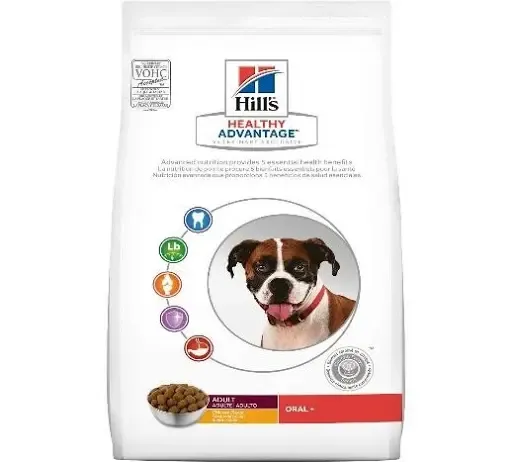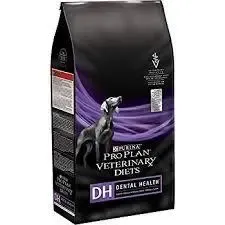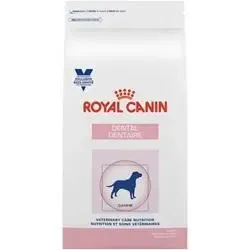Maintaining your dog’s oral hygiene is paramount for their overall well-being, and while regular brushing is the gold standard, diet plays a surprisingly significant role. For pet owners seeking to enhance their furry friend’s dental health beyond brushing, selecting the right dog food can make a substantial difference. This guide delves into how specific dog food formulations can actively contribute to cleaner teeth and healthier gums, helping to combat common dental issues in canines.
Plaque and tartar, the primary culprits behind dental disease in dogs, are a result of a complex interplay of oral bacteria, calcium, phosphorus, lingering food particles, and saliva. Without diligent oral care, this buildup hardens over time, necessitating professional cleaning under anesthesia. When left unchecked, plaque and tartar lead to gum inflammation and periodontal disease, which can have far-reaching implications for a dog’s health. This is where specialized Dog Food Good For Teeth comes into play, offering a daily, passive approach to support oral health.
The Role of Diet in Canine Dental Health
While brushing your dog’s teeth is an essential component of home dental care, the act of chewing itself is a natural mechanism that helps to reduce plaque accumulation. This means that safe chew toys and specially formulated kibble can actively contribute to your dog’s dental hygiene. The key lies in choosing foods designed not only for taste and nutrition but also with specific dental benefits in mind. These diets often feature larger kibble sizes, unique textures, and sometimes even specialized coatings or ingredients that work to minimize plaque and tartar buildup.
The advantage of incorporating dog food good for teeth into your pet’s daily routine is that it offers a consistent, effortless way to support their oral health every time they eat. Instead of remembering to administer a separate dental treat or chew, their regular meals become a proactive dental care measure. This approach is particularly beneficial for owners who may find consistent treat-giving challenging or are concerned about adding extra calories to their dog’s diet.
Specialized Dog Food Formulations for Dental Health
Several leading veterinary brands have developed specialized diets specifically formulated to promote canine dental health. These foods are often recommended by veterinarians due to their proven efficacy in reducing plaque and tartar.
Hill’s Prescription Diet t/d Dental Care: This diet is a cornerstone in canine dental nutrition. Its unique kibble shape and size are designed to create a scrubbing action against the tooth surface as the dog chews, effectively removing plaque and food debris. It also contains a specific formula that helps to reduce bacteria in the mouth. Many owners report a noticeable reduction in bad breath and visible plaque buildup when feeding this food.
 Hill's t/d Dental Care Dog Food
Hill's t/d Dental Care Dog FoodPurina Pro Plan Veterinary Diets DH Dental Health Canine Formula: Purina’s DH Dental Health formula is another excellent option for supporting your dog’s oral hygiene. The crunchy kibble texture is scientifically proven to significantly reduce tartar accumulation. It’s available in both large and small bite variations, catering to the diverse needs and preferences of different breeds. This food is often recommended by veterinarians as part of a comprehensive dental care plan.
 Purina Pro Plan Veterinary Diets DH Dental Health Canine Formula
Purina Pro Plan Veterinary Diets DH Dental Health Canine FormulaRoyal Canin Veterinary Diet Dental Dry Food: Royal Canin offers a specialized dental dry food formulated with a uniquely designed kibble and a proprietary ingredient that actively combats plaque and tartar buildup. The larger kibble size and a more robust fiber matrix work synergistically to “brush” the teeth during chewing. This dietary approach helps to maintain a cleaner oral environment. Royal Canin also provides smaller kibble options for toy and small breeds, ensuring this dog food good for teeth is accessible for all sizes.
 Royal Canin Veterinary Diet Dental Dry Food
Royal Canin Veterinary Diet Dental Dry Food
These specialized diets are often considered prescription diets, meaning they are typically available through veterinary clinics. This ensures that pet owners are receiving expert guidance on the most appropriate food for their dog’s specific needs. When discussing dog food good for teeth with your vet, these options are often at the forefront.
Transitioning Your Dog to a Dental-Focused Diet
Introducing any new food to your dog’s diet should be done with care to avoid digestive upset. If your dog is already accustomed to a diet from one of the brands mentioned above, transitioning to their specialized dental formula will likely be smoother. It’s always advisable to consult with your veterinarian or a veterinary dental specialist to determine the best dental diet for your individual pet. They can assess your dog’s health, breed predispositions, and any existing dental concerns.
When making the switch, a gradual transition over 5 to 7 days is recommended. This involves gradually increasing the proportion of the new food while decreasing the old food. For instance, on days 1-2, feed 75% old food and 25% new food; on days 3-4, switch to 50% old and 50% new; and on days 5-7, feed 25% old and 75% new, eventually moving to 100% new food.
It’s also crucial to consider your dog’s dietary sensitivities or allergies. If your dog has known allergies to common proteins like chicken, beef, or pork, you’ll need to ensure the chosen dental diet is free from those ingredients. Understanding these nuances is part of selecting the most effective dog food good for teeth.
The Importance of a Healthy Mouth Foundation
While specialized dental diets offer significant benefits, it’s important to remember that they are most effective when the dog’s mouth is already in good condition. Professional veterinary dental cleanings, including full mouth dental radiographs, are the ideal starting point. These procedures remove existing plaque and tartar, creating a clean slate for the dental diet to work its magic.
These specific dog food good for teeth formulations are particularly beneficial for dogs that have a predisposition to dental disease and for owners who are committed to daily tooth brushing. However, these diets are not intended to replace the crucial role of regular professional dental cleanings performed by your veterinarian. They act as a powerful complementary tool in your canine’s overall oral health strategy.
For owners seeking the best for their pets, understanding the link between diet and dental health is key. By choosing a dog food good for teeth, you are investing in your dog’s long-term health, comfort, and happiness, one delicious meal at a time.
References
- Veterinary Oral Health Council (VOHC) – vohc.org
- American Veterinary Dental College (AVDC) – avdc.org
- The Kennel Club – Dental Health in Dogs – thekennelclub.org.uk


 Purina Pro Plan Veterinary Diets DH Dental Health Canine Formula
Purina Pro Plan Veterinary Diets DH Dental Health Canine Formula Royal Canin Veterinary Diet Dental Dry Food
Royal Canin Veterinary Diet Dental Dry Food